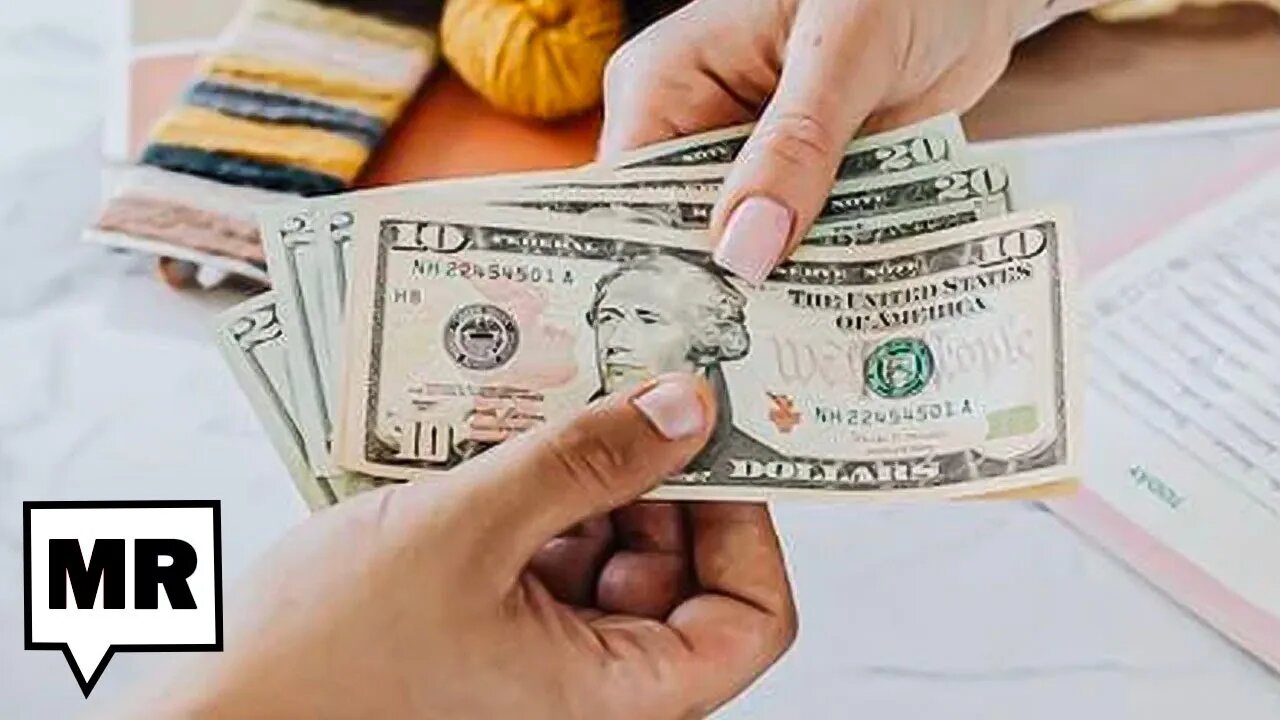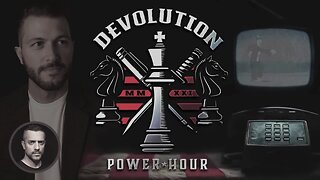Premium Only Content

Why Universal Basic Income Is Great For The Economy Actually
Sarah Moran joins the program to discuss the benefits of UBI. Universal basic income (UBI) is a cash payment made by the government to all citizens, regardless of income or employment status. One of the key arguments in favor of UBI is that it has a multiplier effect on local economies. When people receive a UBI payment, they are more likely to spend it on goods and services, which in turn boosts demand for those goods and services and leads to increased economic activity. This increased demand can lead to increased production, hiring, and ultimately, economic growth. Additionally, UBI can reduce poverty and income inequality, which can also have positive effects on local economies.
Watch the Majority Report live Monday–Friday at 12 p.m. EST on YouTube OR listen via daily podcast at http://www.Majority.FM
https://www.house.gov/representatives/find-your-representative
https://www.senate.gov/senators/senators-contact.htm
#SamSeder #EmmaVigeland #MajorityReport #politics #news #progressive #leftist #democrats #liberal
SUPPORT the show by becoming a member: http://www.jointhemajorityreport.com/
Download TMR's FREE app: http://www.majorityapp.com
TMR MERCH: http://www.shop.majorityreportradio.com
CHECK OUT MORE from the MR crew:
Matt Binder DOOMED https://www.youtube.com/MattBinder
Brandon Sutton DISCOURSE https://www.patreon.com/ExpandTheDiscourse
Emma Vigeland ESVN https://www.youtube.com/ESVNShow
Matt Lech LEFT RECKONING https://www.youtube.com/LeftReckoning
OTHER LINKS:
Twitch: https://www.twitch.tv/themajorityreport
Facebook: http://facebook.com/MajorityReport
Twitter: http://twitter.com/MajorityFM
Instagram: https://www.instagram.com/majorityreport.fm/
Check out more from the MR crew:
Matt Binder DOOMED https://www.youtube.com/MattBinder
Brandon Sutton THE DISCOURSE https://www.patreon.com/ExpandTheDiscourse
Emma Vigeland ESVN https://www.youtube.com/ESVNShow
Matt Lech LEFT RECKONING https://www.youtube.com/LeftReckoning
Image Credit, Karolina Grabowska
https://www.pexels.com/photo/hands-holding-us-dollar-bills-4968637/
https://creativecommons.org/publicdomain/
Image has been cropped and color has been altered.
So yeah I think we've we've worked across different contexts and what we've seen universally regardless of whether you're working in a high-income country or a low-income country. is that people spend the money on first meeting their basic needs. you know in the US that's paying their bills. That's buying groceries. That's paying for child care. and internationally it's you know it's also investing in productive assets. you know rebuilding their houses. buying cows. getting better stock for the stores that they run. and so you know what we've seen across all of our programs is the direct impact on the people receiving the funds. but we've also seen spillover impact in the communities where we're working. and so you know one of the things that are really exciting about our work is one of our studies showed that there was a multiplier effect that actually injecting cash into a community had, you know, a 2.6 x multiplier effect on the kind of income of that community. and I think that's also where you know again we want to continue to make the argument that cash is not only the most direct way to support individuals but that there can be Community impact as well. will you just expand a little bit on that multiplier effect? like I'm not sure that everybody is aware of what that means. and I mean we hear it in the context of a lot of different unemployment insurance or something to that effect. but will you just like to walk us through what that means? and is it different in or have you been able to study because I? My intuition is that the implications of this money in an extreme poverty situation in let's say Kenya is different than it is in maybe you know a town in West Virginia. Will you walk us through those two things? definitely so for the spillover effect first I think the bottom line is if you give one person one dollar the basic idea is giving one person one dollar creates two dollars and sixty cents a contribution to the local economy.
-
 4:30:47
4:30:47
BigN1ck
4 hours agoPhasmo and chill
33 -
 10:03
10:03
The Pascal Show
21 hours ago $6.01 earnedNEW STATEMENT! D.A. Breaks Silence Since Emmanuel Haro Presser... Trying To Shut Up Social Media?!
20.3K5 -
 LIVE
LIVE
LethalPnda
1 hour ago🔫 "Bullets, Bad Decisions & Farlight 84" I @Mystivis
44 watching -
 21:22
21:22
GritsGG
16 hours agoPlugged in MnK on Warzone & We Hit Shots!
171K5 -
 1:23:30
1:23:30
TruthStream with Joe and Scott
2 days agoJaime Harlow is back! #483
16.8K21 -
 1:32
1:32
Gaming on Rumble
2 days agoWhat is the Rumble Creator Program?!?! | Lvl UP
65.8K4 -
 10:34:09
10:34:09
Rallied
16 hours ago $20.89 earnedSolo Challenges ALL DAY
266K9 -
 1:39:43
1:39:43
Brandon Gentile
2 days agoTOP Money Expert: Bitcoin Will Keep Setting All-Time Highs Beyond $10m
22K3 -
 2:02:28
2:02:28
Badlands Media
1 day agoDevolution Power Hour Ep. 385: Trump “Death” Hoax, Supreme Court Tariffs Fight, and Tech-Military Ops
76K40 -
 1:56:48
1:56:48
Tundra Tactical
9 hours ago $16.36 earnedFull Semi-Auto Comedy Hour
44.1K3